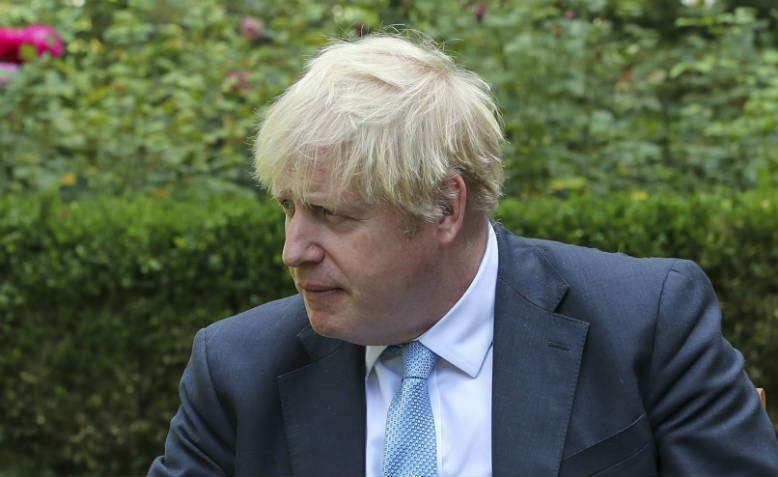 Boris Johnson. Photo: Flickr/Number10
Boris Johnson. Photo: Flickr/Number10
Working class voters will punish any Labour delay in taking down the Tories, argues John Rees
You might think that a prime minister who, in his first vote in the Commons, crashes to defeat would be regarded as weak.
You might think that a prime minister who loses his majority in the Commons on the very first day of a new Parliamentary session would be seen as weak.
You might think that a prime minister who then expels upwards of 20 of his own MPs would be widely proclaimed to be weak and stupid.
If that prime minister were the third his party had got through in as many years you might think he was politically vulnerable.
If, in addition to all this, that prime minister faced the collapse of his government and a general election then you might expect that the opposition would be overjoyed, champing at the bit, cock-a-hoop, relishing the chance to take down the most right-wing government we’ve ever seen.
But you’d be wrong.
Tony Blair, for instance, thinks it’s all a trap. And not your normal human sized-trap. No, it’s an ‘elephant trap’.
In Blair’s mind Boris Johnson and his organ-grinder Dominic Cummings have a cunning plan. They haven’t been forced into an election through the evaporation of their Commons majority and their total inability to even contemplate winning a vote on the floor of the House.
They really want an election with a disastrously split party because they can somehow slip a No Deal Brexit through in the confusion.
Actually they couldn’t and aren’t even trying to.
There was talk of Cummings planning to declare an election before Brexit on the 31st October and hold it after that date. But that talk was nonsense and Johnson hasn’t proposed it. Unsurprisingly, since it would have led to pandemonium and would have landed Johnson with fighting an election campaign in the immediate aftermath of Brexit crash out.
What is actually on the table is that the election is fought before Brexit and indeed before the last European Union summit, hence the unusual Monday 14 October date. That would mean that the Brexit debate is settled, perhaps, by the election outcome.
So why aren’t Labour jumping at the chance to get the Tory government off the back of working people?
Tony Blair’s reticence is easily explained. He thinks Brexit is more important than getting rid of Johnson and is distinctly unhappy at the thought of a Corbyn government anyway. His much-preferred option is to stay in the EU and buy more time for the right wing to get rid of Corbyn before an election.
But the reluctance to call an immediate election runs far wider than the usual Blairite suspects. Why, after years of demanding an election, are some Labour frontbenchers jittery?
Some, like John McDonnell, seem to have become such fervent converts to the EU that they think that Brexit is more important than getting rid of the Tories. This is a mistake.
Tory austerity has done immeasurably more damage to the lives of working people than Brexit could possibly do. And in any case on the proposed timetable, which should certainly be locked into any vote to dissolve parliament, an election victory for Labour (or even depriving the Tories of an overall majority) would enable them to stop No Deal Brexit.
And then there is the one fear on the left that is well grounded: that Johnson and Cummings are indeed planning to fight an election on the basis that they are the champions of the democratic vote to Leave and that their opponents are Establishment stooges who want to frustrate that vote.
This is indeed a problem, and one of the Labour leadership’s own making. If they had not tied themselves so completely to the Remain bandwagon they could have appealed to Leave voters more convincingly and undercut Johnson, especially in the wake of the crisis over proroguing parliament in which the prime minister’s Machiavellian plan ended in shredding his credentials as a democrat.
But when the shift to an unequivocal Remain policy took place a while back we were told that it would unlock a huge reservoir of support for Labour. If the polls are to be believed that simply hasn’t happened.
Labour can’t address this problem by looking for a single second as if it won’t drive the Tories from power at the first opportunity. No working person suffering the daily grind of trying to survive in Tory Britain would have anything but contempt for such miserable cowardice.
On Brexit Labour should stress that it will negotiate a People’s Brexit, its unwisely abandoned original policy, and put that forward as a realistic alternative to Remain. That would cut the ground from under Johnson’s appeal to working-class Leave voters.
Surely after the referendum result and the Brexit Party’s EU election result Labour cannot think that ignoring the raw anger that those events expressed is a good idea.
Labour can also devastate Johnson’s base by moving sharply left on a programme of nationalisation, rebuilding the welfare state, rebooting the education system, and taking on the corporations.
Johnson is vulnerable here. He has had to pretend to be ending austerity in order to try and neutralise Labour’s anti-austerity credentials. Some Labour activists seem confused by this, almost accepting that this is yet another clever Etonian wheeze that leaves them wrongfooted.
But if even the Tories have to move left it proves that left-wing policies are popular. So have more of them, and make them more left wing. That’s the way to reset the national political debate in your favour.
It never does to underestimate your opponents. But it is equally disastrous to overestimate them.
The Bullingdon Boys have got by all their lives on bluff and bluster. They depend on a lack of confidence in working people for the bluff to work. But, right now, they are weak. Strike now.

